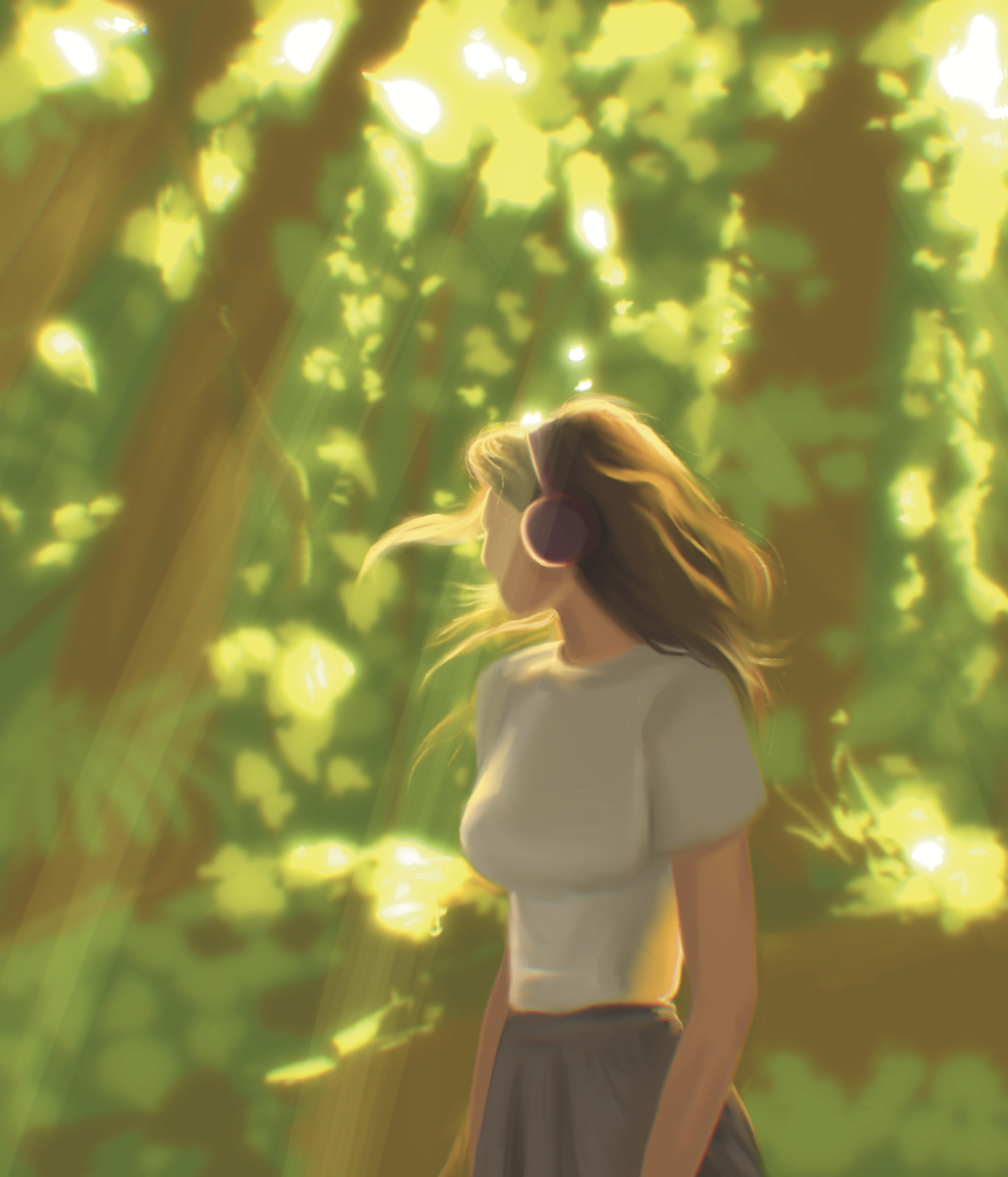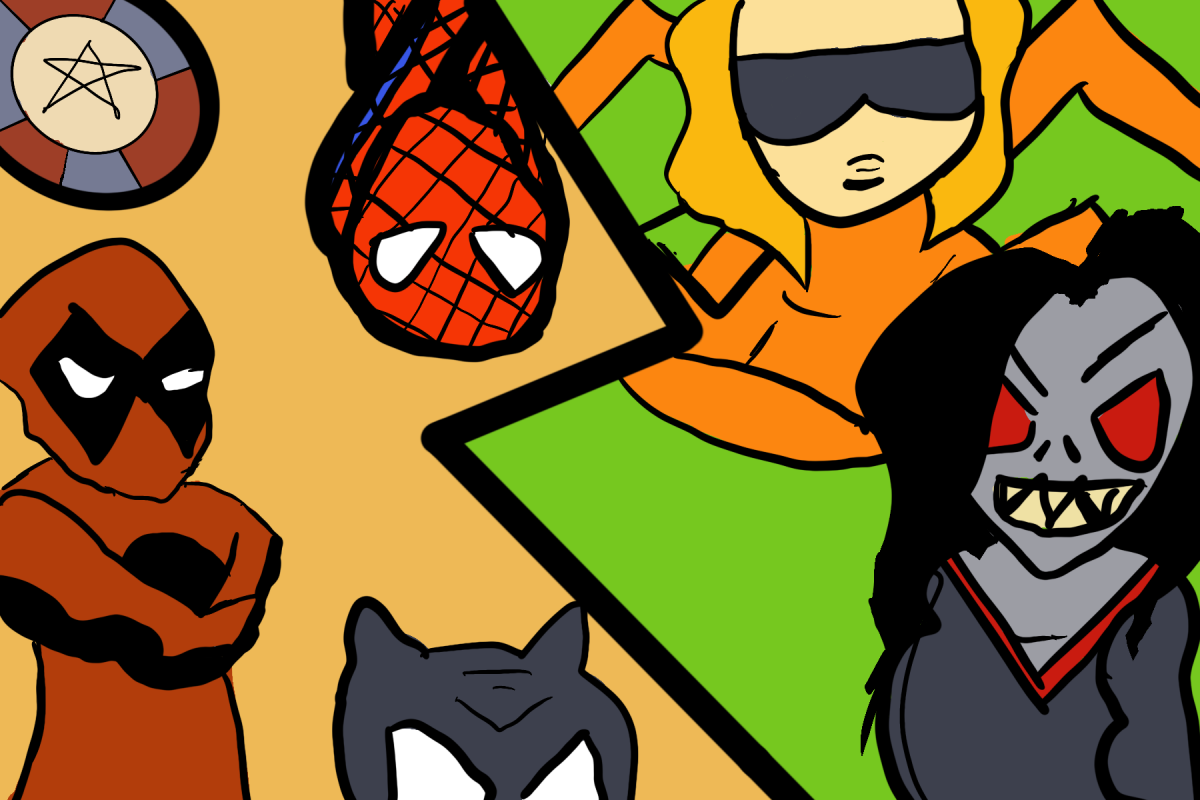Two and a half years ago, the highly influential rap group Injury Reserve piqued my interest for the very first time as I noticed critical acclaim for their latest record, “By the Time I Get to Phoenix.” What first intrigued me as an experimental and unorthodox glitch-rap album further sank its claws in as an emotionally raw and unfiltered depiction of grief, chaos and despair.
Admittedly, I have hardly ventured into the rest of Injury Reserve’s discography, though I am aware of the intense influence they have on the abstract/experimental hip-hop scene. As incredible as it is, this record serves as their final album under the name “Injury Reserve.” This is because of the untimely passing of one of the trio’s group members, Stepa J. Groggs. The remaining members, “Ritchie with a T” and producer Parker Corey, have respectfully decided to leave that name behind them and continue under the new title: “By Storm,” an allusion to the final track of this album.
As for the album itself, it doesn’t hold back when it comes to confronting uncomfortable topics such as loss and even conspiracy. The formation of the record was during the height of the COVID-19 pandemic, and quite a few tracks reflect the swarming fear and distrust that encompassed a significant portion of our society during this time. Notably, “Wild Wild West” repeatedly says, “5G. They putting towers up everywhere.” The delivery on such a line makes the listener as uncomfortable and weary as Injury Reserve is trying to convey. The production is blaring and every utterance over top comes across as somebody whispering in fear.
“Footwork in a Forest Fire,” “Ground Zero” and “Smoke Don’t Clear” all reflect this similar attitude in their decision to be off-putting as opposed to lulling the listener in with consistent choruses or hooks. These tracks all used to be my least favorite on the album, but honestly, as I’ve grown older, I realize there’s something entrancing and intensely engaging about their anxiety-inducing nature. In some ways, it feels quite genuine for an album like this to be so comfortable displaying fear and discomfort as just as real of a feeling as the others addressed, all with the purpose of being honest with ourselves and human nature.
Enough can’t be said about how much I love this album’s opener, “Outside.” This song hooked me from the moment I first listened to it. The deceivingly lo-fi production is actually incredibly lush, with static basslines humming while synth lines that are equally jarring as they are catchy simmer in.
It’s genuinely hypnotizing to me, and meanwhile Ritchie with a T arrives with a booming voice and delivers a calculated rant that appears to be sizing up an “enemy” or perhaps just a sentiment. The antagonistic nature of the song is abrasive in some ways, but also communal in approach, as the mannerisms are so unfiltered and real that the statements feel more bridge-building than maybe even intended.
“We cannot end this with an agree to disagree. There’s just some things that ain’t right — there is no happy medium. That is nothing.”
After what feels like a declaration of war against people beyond reason and who recklessly cause harm, the track ends with a headbanging finale that communicates the scope of the album to follow. The melodic catchiness of the song isn’t always present throughout the record, but that just makes the rest of the times that much more impactful.
It can’t be made for certain whether or not the song “Top Picks for You” was written about the late Stepa J. Groggs, though that was my interpretation for the longest time. However, it feels much more important to appreciate the song for what it is, which is a hauntingly beautiful ballad of grief and loss.
This song may very well be my favorite of the album, because Ritchie with a T is delivering the most potent metaphors to describe the loss of a loved one in ways that will forever impact me. It talks profusely of patterns in place as a result of someone’s impact on us, reflecting in some way an aspect of people that will never actually be lost. It’s this revelation that’s delivered in an equally haunting and beautiful manner, a balance that is quite true to life.
“I look across the table, I see a lot more than what appears to be a shadow. He walks across the room, I see a lot more than seems to be patterns. I scan the room, I see bits and pieces of you scattered. It’s those same patterns that’re gonna get us through the next chapter.”
It’s the final two songs that I would like to close this article with, though, as they might have had just as much of an impact on me as the prior song.
“Knees” is something truly astounding to me. It paints a picture of acknowledging pain as well as finding the fortitude to keep going anyways. Sometimes it’s hard to discern whether or not the sentiment of the song is that of tragedy or strength, but I don’t think the conclusion needs to be that distinct in order to have an impact. What is more accurate to life, anyways, than that all too familiar muddled confusion between anguish and perseverance. We’re constantly growing, but that doesn’t always mean we’re getting taller.
“My knees hurt when I grow, and that’s a tough pill to swallow. Because I’m not getting taller. Please, is there any way I can grow?”
The finale to the record, “Bye Storm,” is the epitome of this perseverance in my mind. It’s not a denial of the pain that meets us on life’s journey, and it doesn’t even say we can’t succumb to it from time to time. But what it does convey is something ongoing. The lyrics express uncertainty in the face of pain and the ability to move on, but the music behind the words seem to already know the answer. It’s easily the most catchy and melodically sweet song of this harsh record and though it still drives in a glitchy/synthetic style, the triumphant nature is not lost.
“It rains, it pours, but damn man, it’s really pouring. They said you’ll cope, but damn man, shit, I don’t know man. We laugh, we joke ‘cause, man, that’s just how they’d want it. It rains, it pours, but damn man, it’s really pouring.”
The lack of lyrical certainty in this coping is something that drives the point of this record home for me, which is that we don’t have the answers. Nothing is solved, an album like this just serves as an airing out of very real and vulnerable feelings that perhaps don’t have an end goal. It’s the acceptance of these ugly and complicated feelings that allow us to persevere. Life keeps going and sometimes that feels tragic. Maybe we won’t be able to cope with it. I don’t know either. But we keep going, and maybe that’s enough.
I’m going to cut myself short once again with this review, as with most, because I can tell I could truly talk about this album all day. I really can’t speak enough to how much this album means to me. Even beyond the lyrical and thematic content, every aspect of this album is so incredibly impressive.
Ritchie with a T’s lyricism has such a rhythmic and entrancing flow that he makes simple conversational lines seem like spells, and Stepa J. Grogg’s involvement despite his late passing can’t be ignored either, as his verse in “Knees” truly makes the song what it is. The production is lush and grandiose as ever, and incomparable to anything else I’ve heard when it comes to both scale and thematic execution.
Thank you for your time, if you’ve made it this far. Please feel free to contact me if you have any suggestions for what I should review next, either new releases or deep cuts, it doesn’t matter to me. I really enjoy talking about music and I’m always ecstatic to find something new or talk about something I really love.
As always, remember love. Until next time.
Anthony Morris is an opinion writer. Contact them at [email protected].







